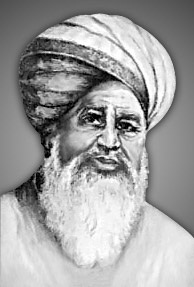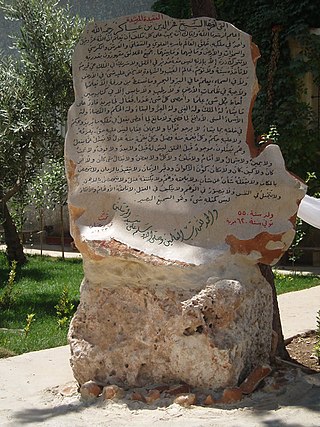Gohar | |
|---|---|
| Coordinates: 32°17′N73°11′E / 32.28°N 73.19°E | |
| Country | |
| Province | Punjab |
| Elevation | 206 m (676 ft) |
| Time zone | UTC+5 (PST) |
Gohar, also known as Chak 8, is a village of Pattoki Tehsil, Kasur District in the Punjab province of Pakistan.
Gohar | |
|---|---|
| Coordinates: 32°17′N73°11′E / 32.28°N 73.19°E | |
| Country | |
| Province | Punjab |
| Elevation | 206 m (676 ft) |
| Time zone | UTC+5 (PST) |
Gohar, also known as Chak 8, is a village of Pattoki Tehsil, Kasur District in the Punjab province of Pakistan.
It is located at 32°28'0N 73°19'0E with an altitude of 206 metres (679 feet). [1] It is close to Gehlan.
Gohar is famous for two Islamic scholars, namely, Maulana Ishaq Rehmani and Maulana Mohi ud din Salfi. Molanah Ishaq Rehmani was a member of the Gen Ayub Advisory Council. Monalh Mohi ud din salfi served in Medina University in Saudi Arabia. There is also an Islamic Scholar Prof. Hafiz Muhammad Ayub, a prominent Religious Scholar and was Head of Islamic Studies Department UET Lahore also belongs from notable family of Gohar.

The Lahore Ahmadiyya Movement for the Propagation of Islam, is a separatist group within the Ahmadiyya movement that formed in 1914 as a result of ideological and administrative differences following the demise of Hakim Nur-ud-Din, the first Caliph after Mirza Ghulam Ahmad. Members of the Lahore Ahmadiyya movement are referred to by the majority group as ghayr mubāyi'īn and are also known colloquially as Lahori Ahmadis.
Shams ad-Dīn adh-Dhahabī, also known as Shams ad-Dīn Abū ʿAbdillāh Muḥammad ibn Aḥmad ibn ʿUthmān ibn Qāymāẓ ibn ʿAbdillāh at-Turkumānī al-Fāriqī ad-Dimashqī was an Athari theologian, Islamic historian and Hadith scholar.
Mohi-ud-Din Islamic University (MIU) is a private university in Nerian Sharif, Azad Kashmir, Pakistan, that offers undergraduate and post-graduate education.

Shaykh al-Islām was used in the classical era as an honorific title for outstanding scholars of the Islamic sciences. It first emerged in Khurasan towards the end of the 4th Islamic century. In the central and western lands of Islam, it was an informal title given to jurists whose fatwas were particularly influential, while in the east it came to be conferred by rulers to ulama who played various official roles but were not generally muftis. Sometimes, as in the case of Ibn Taymiyyah, the use of the title was subject to controversy. In the Ottoman Empire, starting from the early modern era, the title came to designate the chief mufti, who oversaw a hierarchy of state-appointed ulama. The Ottoman Sheikh al-Islam performed a number of functions, including advising the sultan on religious matters, legitimizing government policies, and appointing judges.
Ayub Khan is a compound masculine name; Ayub is the Arabic version of the name of the Biblical figure Job, while Khan or Khaan is taken from the title used first by the Mongol rulers and then, in particular, their Islamic and Persian-influenced successors in South Asia, where the name is usually found, although Khan was being used before outside South Asia.
Abd-al-Razzāq Samarqandī was a Persian Timurid chronicler and Islamic scholar. He was for a while the ambassador of Shah Rukh, the Timurid dynasty ruler of Persia. In his role as ambassador he visited Kozhikode in western India in the early 1440s. He wrote a narrative of what he saw in Calicut which is valuable as information on Calicut's society and culture. He is also the producer of a lengthy narrative or chronicle of the history of the Timurid dynasty and its predecessors in Central Asia, but this is not so valuable because it is mostly a compilation of material from earlier written sources that are mostly available from elsewhere in the earlier form.

Hakeem Noor-ud-Din was a close companion of Mirza Ghulam Ahmad, the founder of the Ahmadiyya Movement, and his first successor and first Ahmadiyya caliph since 27 May 1908.

Haji Shariatullah was a prominent religious leader and Islamic scholar from Bengal in the eastern subcontinent, who is best known as the founder of the Faraizi movement. In 1884, the Shariatpur District was formed and named after him.

Shah Niyaz Ahmad (1742-1834) was a Sufi, poet and author from India.

Khawaja Muhammad Qamar Ud Din Sialvi (1906–1981) known as Shaykh-ul-Islam was a Pakistani Islamic scholar, religious leader and politician. He was a Waliullah of the Chishti Sufi order; his Sufi convent (zawyah) is located in the village of Sial Sharif.

Majlis-e Ahrar-e Islam, also known in short as Ahrar, is a religious Muslim political party in the Indian subcontinent that was formed during the British Raj on 29 December 1929 at Lahore.

Mohi-ud-Din Islamic Medical College is the first Medical College of Azad Jammu & Kashmir in either the public or the private sector.
Ghulam Nabi Shah Khaniyari also Mufti Ghulam Nabi and Naba Shah was a Kashmiri historian of Kashmir. His Wajeez-ut-Tawarikh (1857) gives information on the society, economics and political history of the Sikh period and earlier part of the Dogra rule in Kashmir.
Haji Mohi-ud-Din Miskin also Ghulam Mohiuddin was a Kashmiri poet who also wrote a history of Kashmir, Tarikh-i-Kabir. He is the first, after Mirza Ghulam Ahmad himself (1899), to record identification of the Roza Bal tomb with Jesus: "Others believe that it is [the] tomb of a great Prophet who is no other than Hazrat Isa [Jesus], the Spirit of God.” (1902).
Tarar Khal is a Tehsil and tourist attraction in Sudhanoti District of Azad Kashmir. It is the headquarters of Tehsil Tarar Khal. It is located 129 kilometers (80 mi) from Islamabad, 31 kilometers (19 mi) from Rawalakot and 32 kilometres from Pallandri at an altitude of 6,502 feet (1,982 m). 10 km from Tarakhel and 32 km from Palindri a small town called جُنجال Hill was made the first capital of Azad Kashmir.

Abu Ishaq al-Isfara'ini was a renowned Sunni scholar, jurisconsult, legal theoretician, hadith expert, Qur'anic exegete, theologian and a specialist in the Arabic language. Al-Isfara'ini's scholarship was focused on the sciences of Aqidah, Hadith and Fiqh. He was the foremost leading authority in the Shafi'i school of his time. He was along with Ibn Furak the chief propagator of Sunni Ash'ari theology in Nishapur at the turn of the 5th Islamic century.
Islamic university or Al-Jami'ah al-Islamiyyah is an educational institution.

Maulana Syed Shahabuddin Salfi Firdausi was an Indian Islamic scholar, author and peace activist. He founded Athar Blood Bank in 2012 at Solapur.
Mubashir is a name of Arabic origin rooted in the Quran. It means “bearer of good tidings/news”.